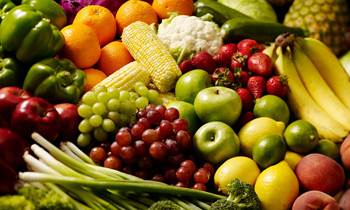London, Feb 12: A lot has been said about the health benefits of inculcating fruits and vegetables in our daily diet but the researchers have now proved the psychological benefits of a balanced meal.
 They have found that naturally-grown food can potentially tackle depression in as little as two weeks. Researchers from the University of Otago studied 171 adults aged between 18 and 25 about their dietary habits.
They have found that naturally-grown food can potentially tackle depression in as little as two weeks. Researchers from the University of Otago studied 171 adults aged between 18 and 25 about their dietary habits.
They were split into three groups to investigate the effects of having a diet high in fruit and vegetables.
Over a fortnight, they either continued eating as normal, or were encouraged by text reminders and pre-paid vouchers to eat more fruit and vegetables. Or they were personally given two extra daily servings of fresh produce (carrots, kiwifruit, apples and oranges). Those in the last group reported significant improvements to their psychological well-being, with boosts in vitality and motivation.
However, those reminded by text and given $10 vouchers did not show a similar improvement, according to the study published in PLOS ONE.
And, when surveyed, were found more likely to have eaten cooked vegetables in casseroles or mixed in with other meals.
Study author Dr Tamlin Conner said: 'The message from this study is we should be giving people more fruits and vegetables to eat, not simply reminding people to eat their 5+ a day.
'People in dormitories, children in daycare centres, patients in hospitals, employees in the workplace, could be provided with fresh fruits and vegetables on a regular basis.'
But she added that further research is needed to address whether eating more fresh produce might make differences to people's ill-being, including conditions such as depression.





Comments
Add new comment